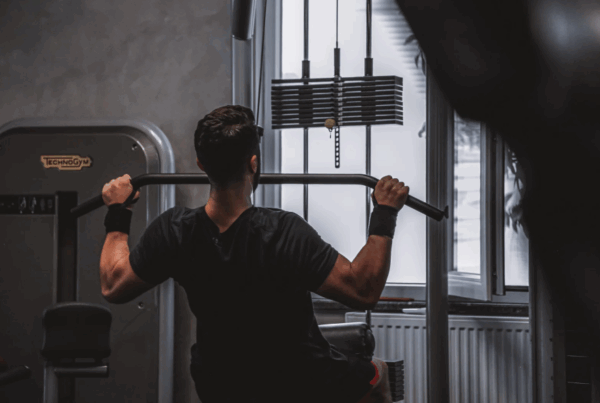If we’ve done our job right, our clients won’t need us forever. Now, if we’re strictly looking at this from a business perspective, it might not be the most optimal model. But hey, we’re not just about business—we’re in the business of health and function! And trust us, this is the ultimate model for long-term health and function. Those who master the art of self management in physical activity and lifestyle interventions are set to experience significantly fewer issues in the long run.
Regardless of the specific goals—be it returning to work, improving well-being, or achieving work readiness—we always have an underlying goal of self-management. So, how do we ensure we hit the mark? Here are the top three things we focus on to make sure we’re not just achieving goals but fostering long-term self management.
1. Cultivating Intrinsic Motivation
What makes you lace up those sneakers and hit the pavement? Scratch that—what motivates you to do anything in life? It’s a pivotal question. There are two broad categories of motivation: extrinsic and intrinsic. Extrinsic motivation is when external factors like money or societal expectations drive us. Intrinsic motivation, on the other hand, comes from within—it’s that fire because we genuinely enjoy the process or seek something deeper.
We’ve found that when we nurture intrinsic motivation throughout our programs, our clients are more likely to stay committed on their own. And research backs this up. How do we achieve this? By defining and adding to their “why” and crafting a program that they genuinely enjoy. In the return-to-work realm, a shift in “why” could mean transitioning from external pressures to a desire to return to work for one’s health and identity. As for enjoyment, it’s all about listening and creativity—what does the client enjoy, and how can we incorporate that into an effective program?
2. Skill Development and Education
Knowledge is power, and we’re not keeping it to ourselves. We place a massive emphasis on education throughout all our programs. Expanding on the above, educating our clients about the “whys” behind their program is a game-changer. Imagine being told to walk outside every day with no explanation—would you do it? Now, what if we explained how it could reduce your risk of chronic disease, boost mental resilience, and elevate your energy levels? That changes the game!
Beyond motivation, education equips clients with tangible skills, ensuring they can independently participate in every aspect of their exercise program, long after we’re gone. No more reliance on our presence to correct technique or troubleshoot common roadblocks — we teach them, prioritising independence every step of the way. The power of knowledge goes beyond participation; it breeds feelings of empowerment, control, and confidence.
3. Establishing Support Networks
This one is often-overlooked: a solid support network. It’s no surprise that robust support networks are crucial for habit formation, especially when it comes to exercise. This holds true in the return-to-work space, where the transition from rehabilitation to being back at work can be stark in terms of support.
Bridging this gap is a nuanced endeavour. It depends on each client’s unique needs and circumstances. Some may benefit from workplace engagement to ensure ongoing support, while others might require discussions about and assurances of support in the home environment. In some cases, we kickstart a social support system from the get-go, placing clients in environments where they’ll naturally become part of a supportive network, like group fitness classes, sports clubs, or gym communities.
So, the next time you’re poring over one of our reports and come across terms like “long-term adherence” or “sustainable return to work,” know that there’s a depth of thought behind these focus areas. And for your personal wellness journey, consider implementing some of these strategies with the long game in mind. Your future self will thank you!
Author: Tessa Nielsen
Clinical Exercise Physiologist and
Content Creator at Specialised Health
#exercisephysiology #exerciserehab #rehabilitation #lifeinsurance #incomeprotection #ctp #workcover #mobile #mobileexercisephysiology #fatigue #mentalhealth #cancer #musculoskeletal #injury #pain #physio #physiotherapy #Sydney #Brisbane #Melbourne #Adelaide #Auckland #Waikato #BayofPlenty #Wellington #Otago #Christchurch



